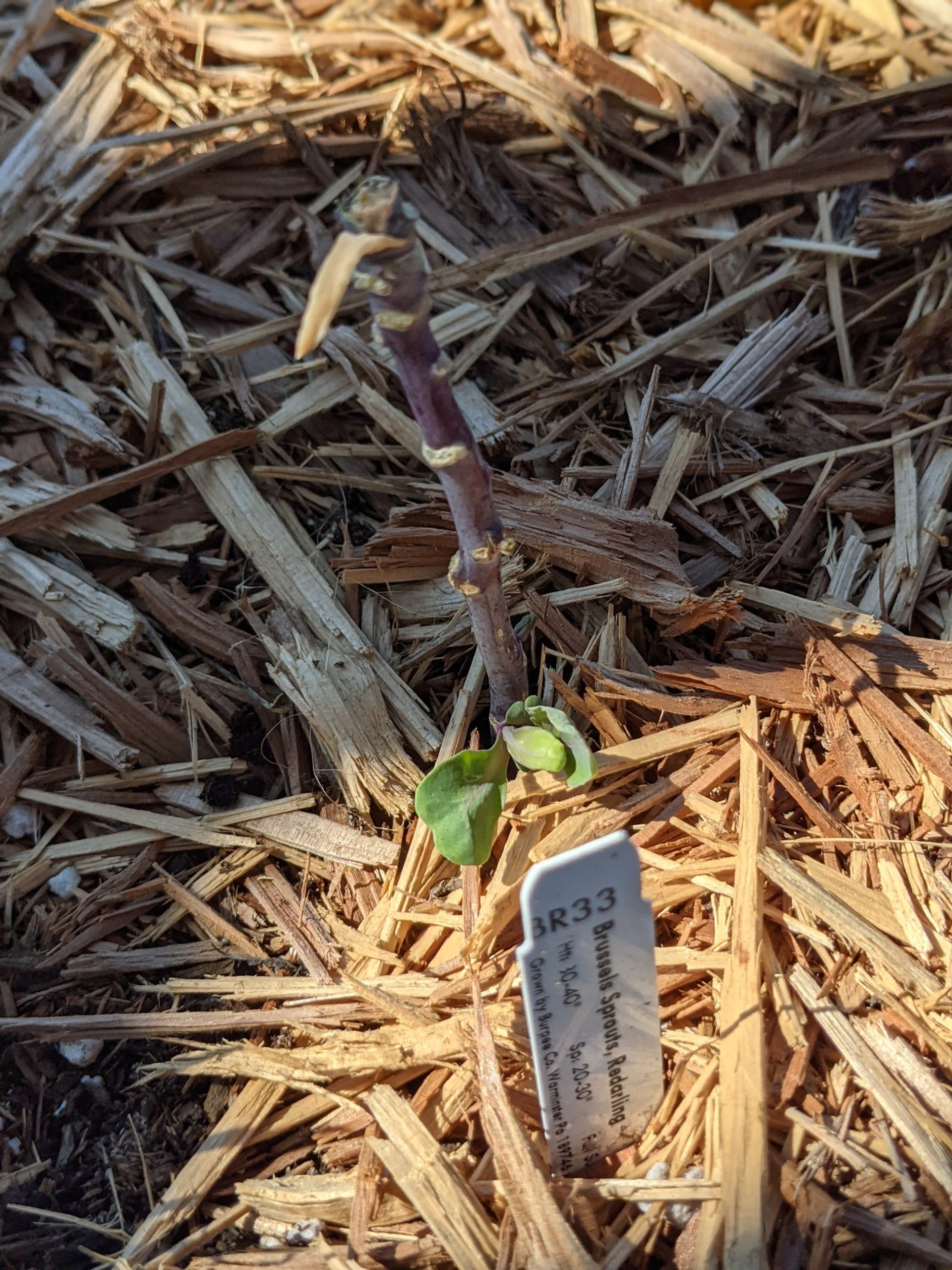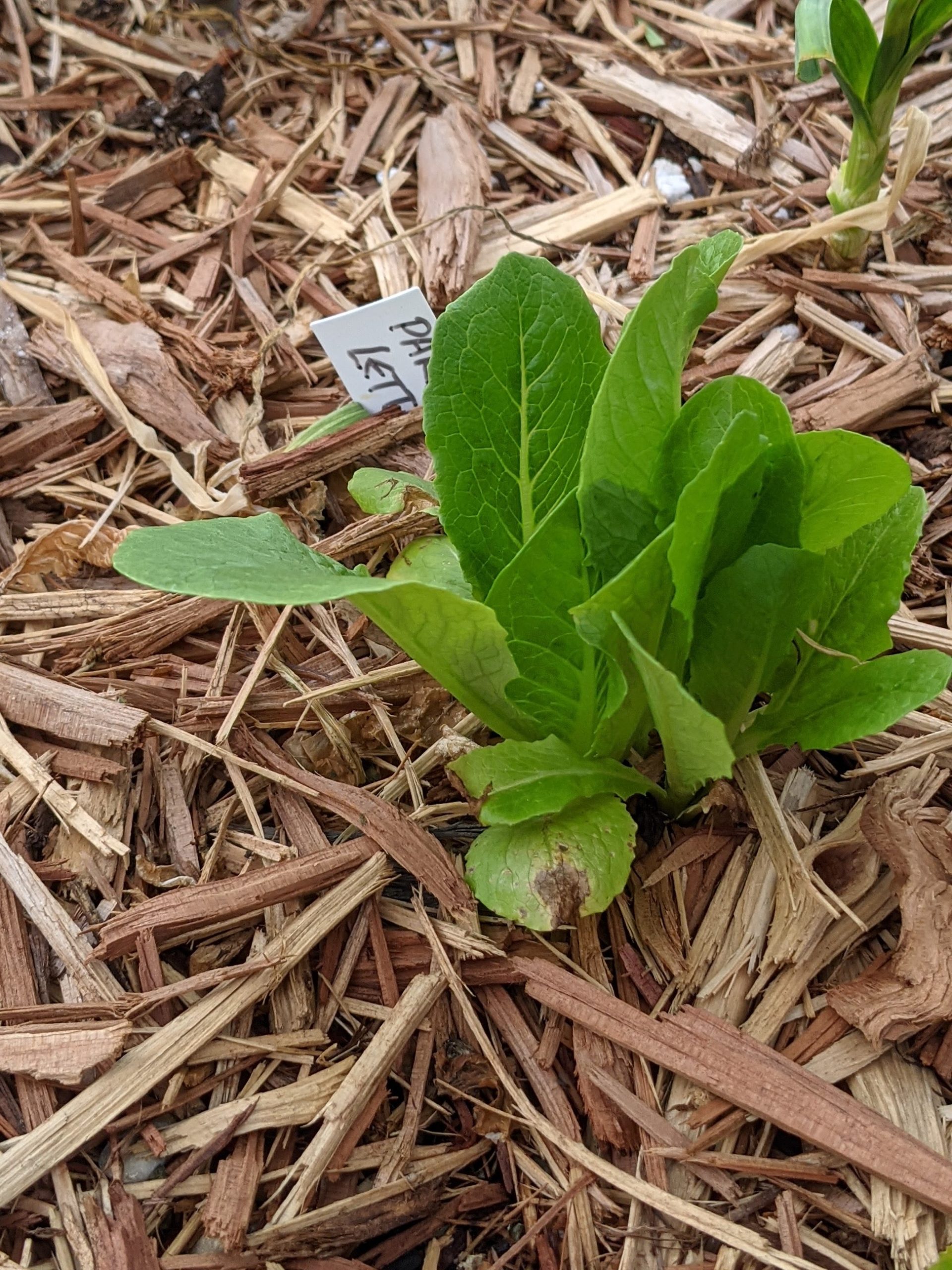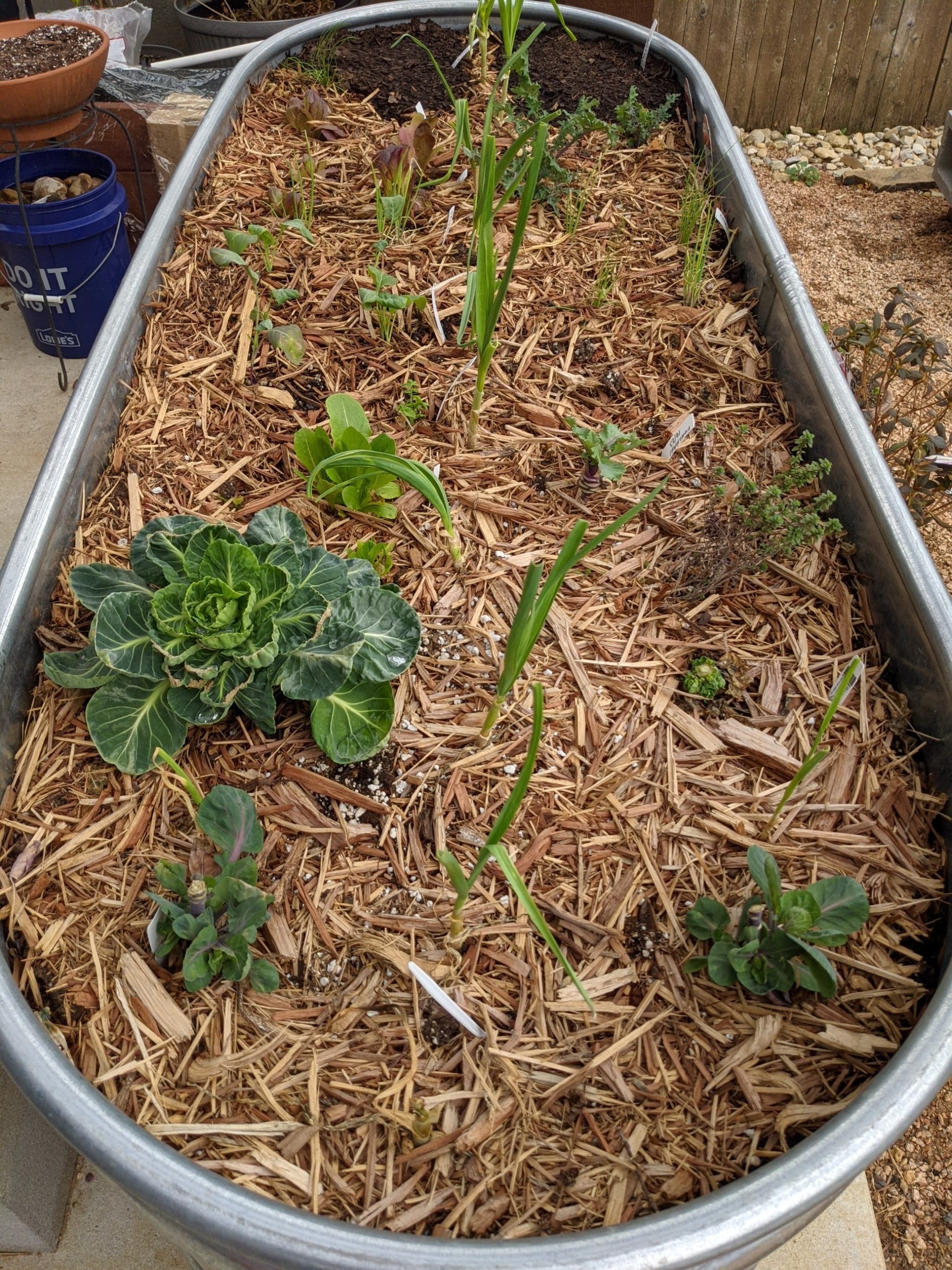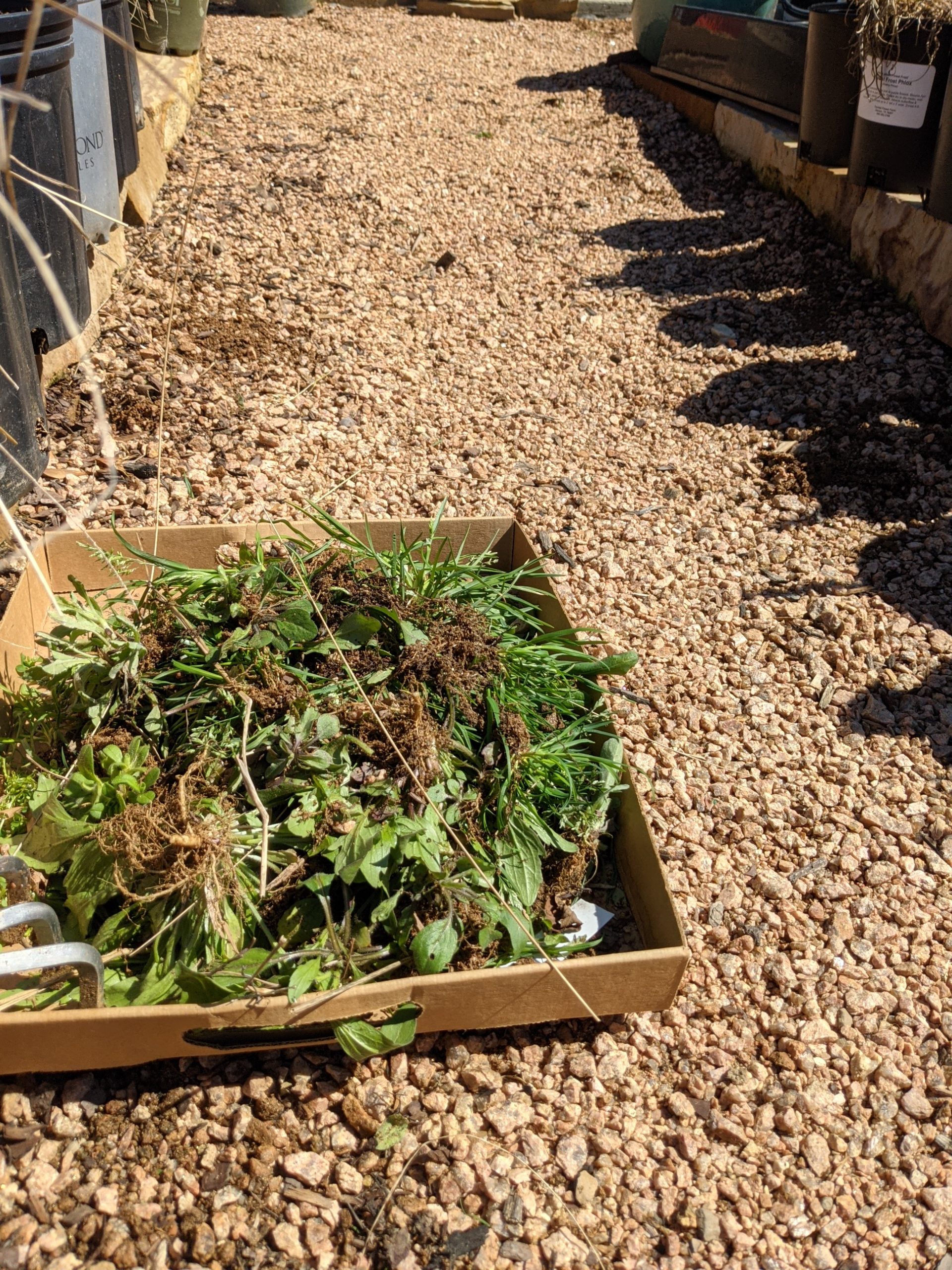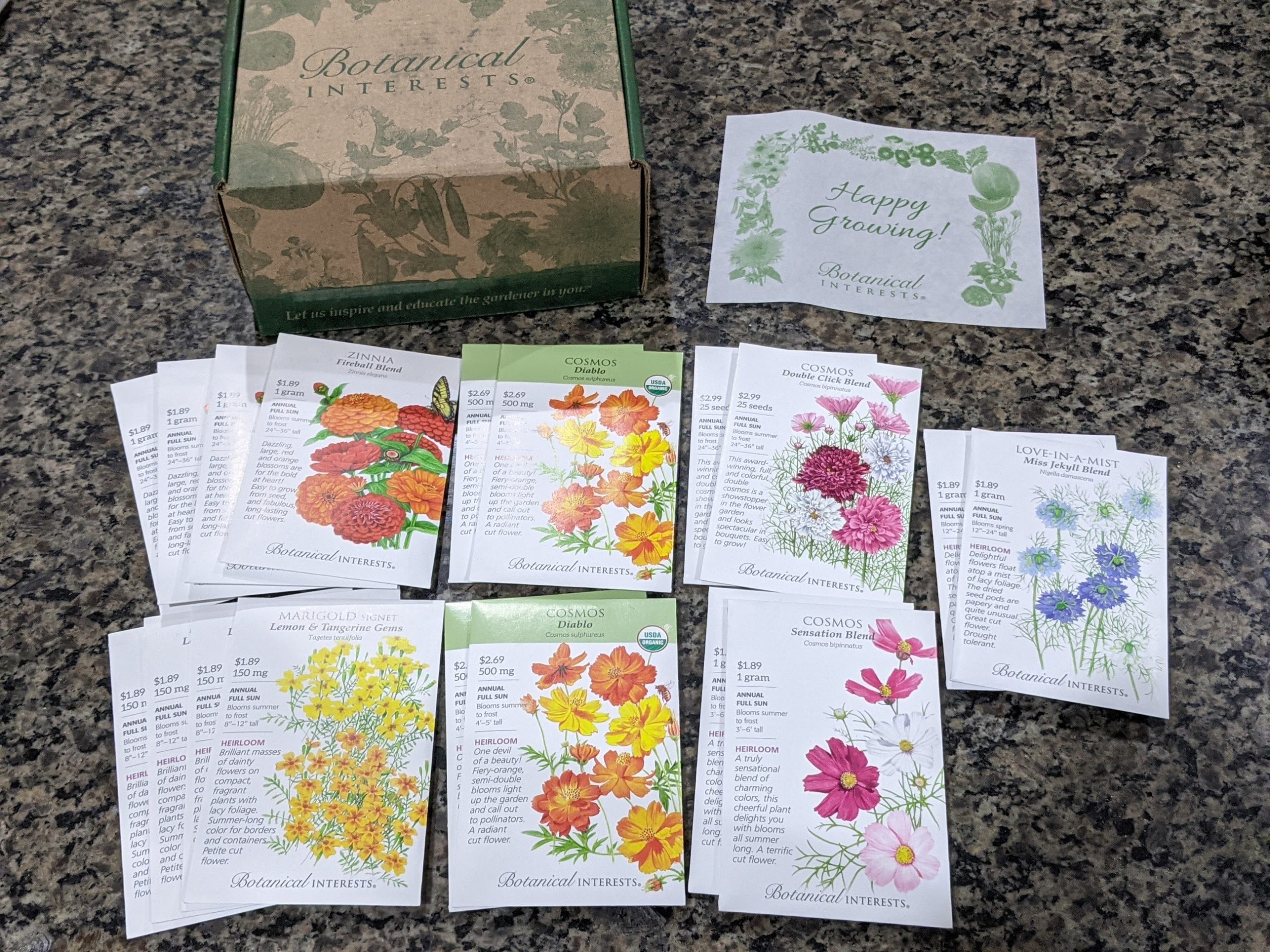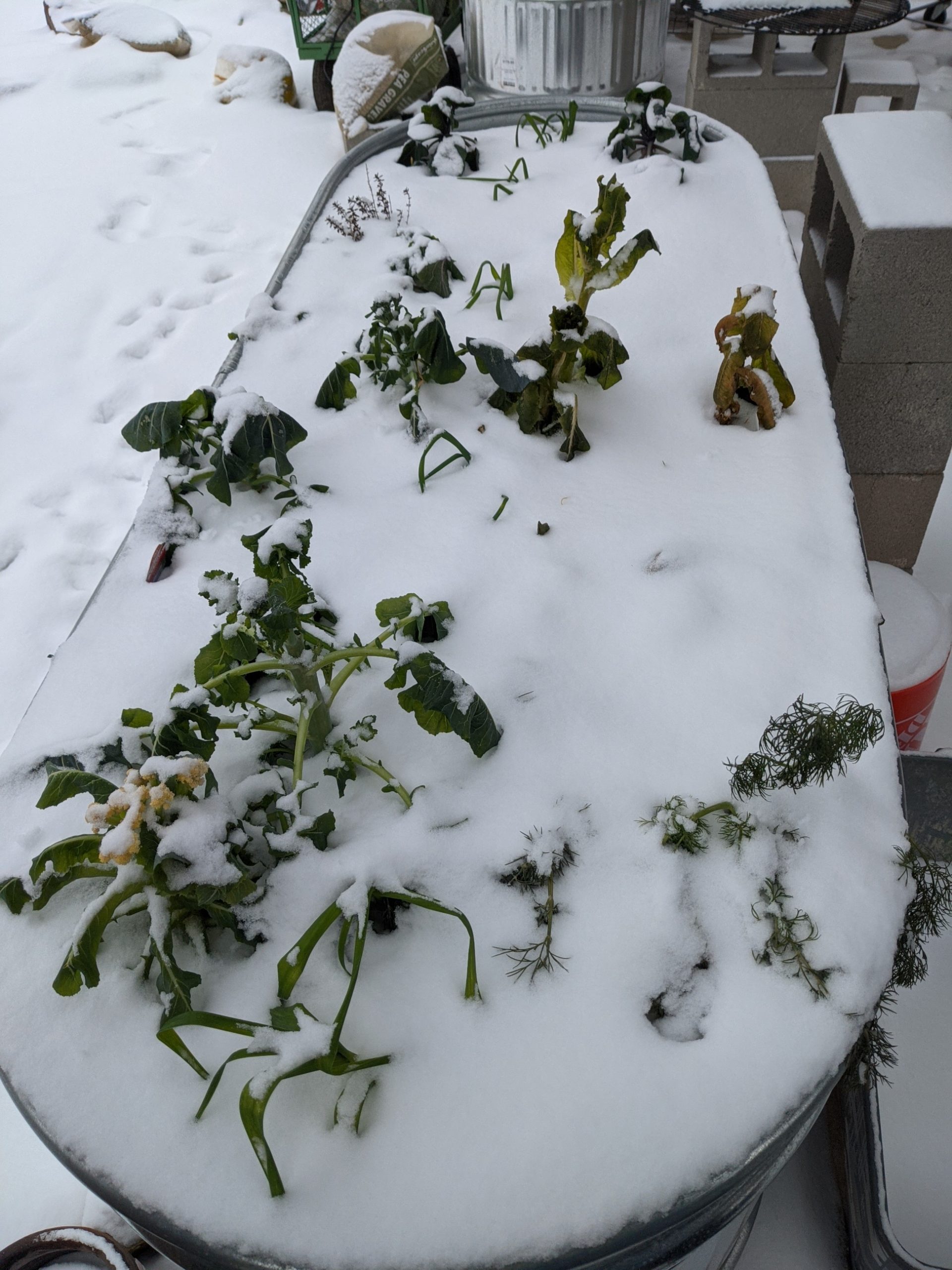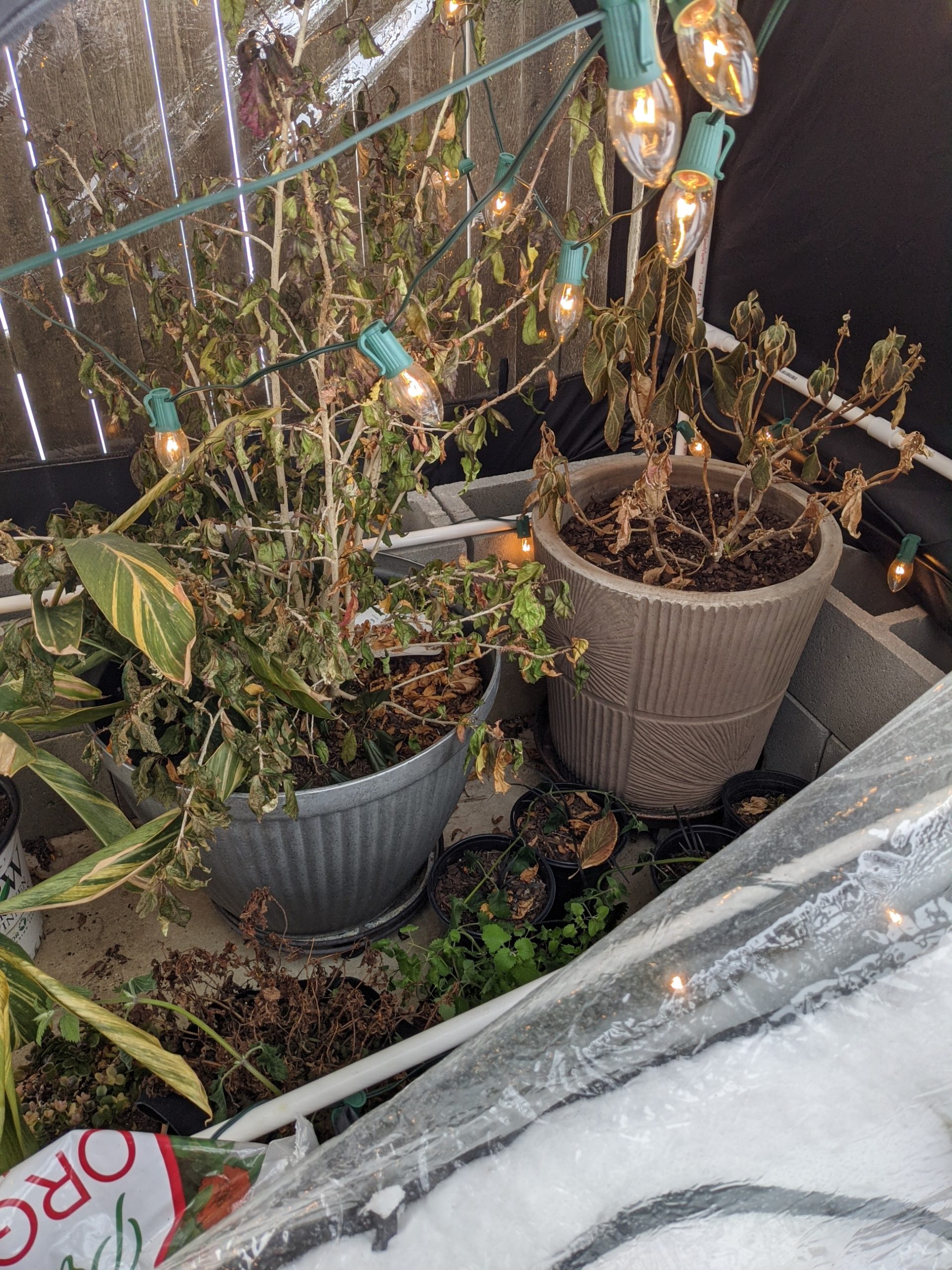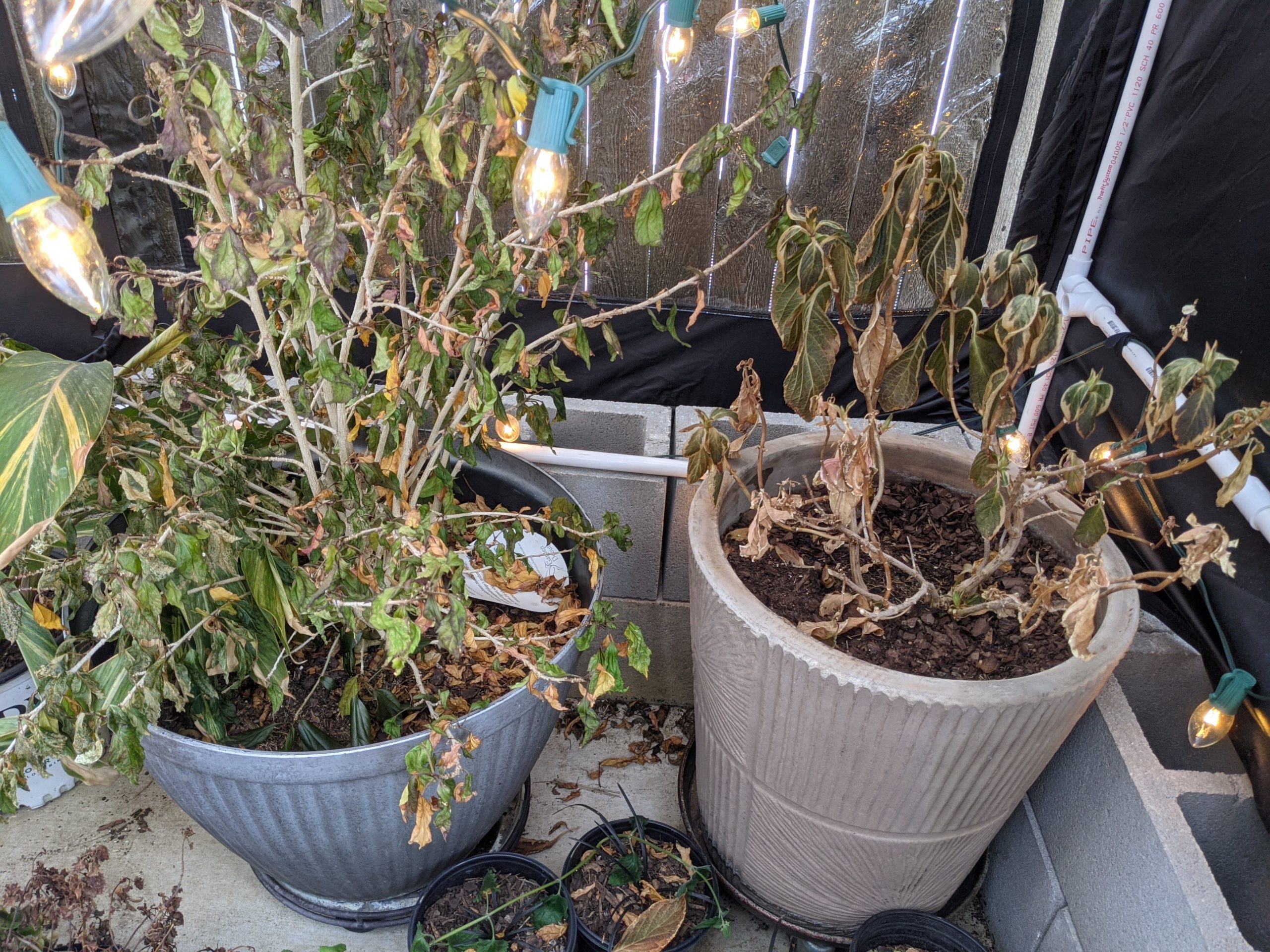I’ve been fretting about the ferns in the shade bed. Since nearly everything but the ferns and hostas have emerged, I’m getting a little anxious to see if they made it through the freeze.
The ferns in question are of three varieties: two specimens of Japanese painted fern, Anisocampium niponicum, and two specimens of Silver Brake ferns, Pteris argyraea (?), and a clover fern, Marsilea macropoda,
The marsilea overwintered in the garage, but perished when I moved it inside in March. But I had already anticipated getting another specimen from Painted Flower Farm.
The Silver Brake ferns were marked for zone 9 hardiness according to the Lowes plant tag, so they could have been misidentified/mislabeled. Instead of Pteris quadriaurita argyraea, these may actually be Pteris cretica, at least based on the image lookups I’ve performed. Regardless, I didn’t expect them to resurrect. But I potted up the rootballs anyway to make room for an assortment of new plants.
The Japanese painted ferns were giving me the itch to go buy new ones. But I waited them out.




